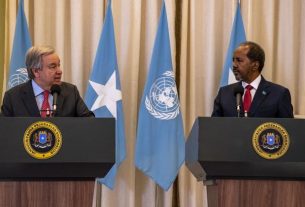German President Frank-Walter Steinmeier recently concluded a two-day visit to Abuja, Nigeria, aimed at enhancing the long-standing energy partnership between the two nations. Steinmeier’s visit, which included a high-level delegation of German companies in energy, finance, distribution, and technology, underscores the growing collaboration between Europe’s largest economy and Africa’s most populous country.
Expanding Energy Cooperation
During the visit, President Steinmeier highlighted the decades-long energy relationship between Germany and Nigeria, which has evolved over time from a reliance on oil and gas to a broader focus on renewable energy. As part of his address, Steinmeier pointed out that recent years have seen a shift towards solar and wind power, with future goals aimed at advancing hydrogen production, positioning both nations at the forefront of global clean energy development.
“We have one of the longest energy partnerships that Germany has ever had with Nigeria,” Steinmeier remarked. He added that the cooperation had significantly expanded beyond traditional energy sources, in line with global trends toward sustainability.
German companies such as Siemens, Enertrag, Off-Grid Europe, Neuman & Esser, and Dermalog are already active in Nigeria’s energy sector. These companies, along with others in the German delegation, are keen to capitalize on Nigeria’s ongoing economic reforms and its vast renewable energy potential.
Nigeria’s Economic Reforms: A Mixed Impact
Nigeria’s President Bola Ahmed Tinubu, who assumed office in May 2023, has implemented major economic reforms aimed at revitalizing the country’s economy. Notably, Tinubu abolished a costly fuel subsidy and allowed the naira to float, moves designed to reduce fiscal pressures and attract foreign investment. However, these changes have contributed to inflation, which reached a nearly 30-year high of over 33 percent in October 2023, presenting immediate challenges for Nigerians.
Despite these short-term economic difficulties, German companies view the reforms positively. Steinmeier acknowledged that the economic climate was improving, stating, “German companies are seeing an improvement in investment relations.” The German delegation’s visit serves as a reaffirmation of Germany’s commitment to Nigeria, with officials expressing optimism about further collaboration.
Renewable Energy and Future Collaboration
While no new agreements were finalized during the visit, Nigerian Energy Minister Adebayo Adelabu confirmed that both sides discussed accelerating existing agreements, such as the $500 million renewable energy investment pledge between the Union Bank of Nigeria and the German DWS Group. Additionally, Nigerian company Riverside LNG has committed to delivering 850,000 tonnes of natural gas to German firm Johannes Schuetze Energy Import AG.
These agreements represent a growing focus on renewable energy and natural gas, aligning with global energy trends and Nigeria’s commitment to diversify its energy mix. Germany’s role in helping Nigeria meet its renewable energy ambitions will be key in both countries’ efforts to mitigate climate change and promote sustainable development.
Broader Diplomatic Engagement
Beyond energy discussions, Steinmeier’s visit also involved meetings with senior Nigerian officials, including President Tinubu and the Chairman of the Economic Community of West African States (ECOWAS), Omar Alieu Touray. Additionally, Steinmeier was set to visit Lagos, where he planned to meet with notable Nigerian figures, including Nobel laureate Wole Soyinka and renowned artist Nike Okundaye.
Despite Germany’s presidential role being largely ceremonial, Steinmeier’s visit highlighted the importance of bilateral relations, particularly in energy, economics, and cultural exchange. In October 2023, German Chancellor Olaf Scholz had also visited Nigeria, further emphasizing the growing importance of this strategic partnership.
Looking Ahead
Germany’s engagement with Nigeria is crucial for both countries as they navigate the challenges of energy transition, economic reform, and sustainable development. The strong energy partnership, marked by a shift toward renewables and innovative projects like hydrogen production, offers significant potential for both nations. As Nigeria continues to implement economic reforms and diversify its energy sector, the role of Germany and other international partners will be pivotal in helping the country achieve its long-term growth and sustainability goals.



